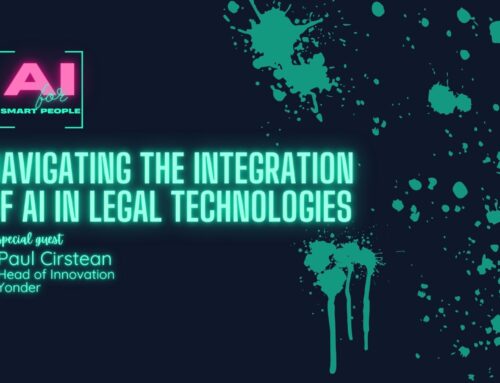AI and Risk Management in Legal
Featuring
Jillian Bommarito, Chief Risk Officer at 273 Ventures
In the ever-evolving legal landscape, artificial intelligence (AI) has emerged as a transformative force. Yet, integrating AI into legal practices brings significant challenges, particularly in risk management. In our latest podcast episode, Cheryl Wilson Griffin sits down with Jillian Bommarito, Chief Risk Officer at 273 Ventures, to explore these complexities.
Understanding AI’s Role in Legal Risk Management
AI offers numerous benefits for legal professionals, from enhancing research capabilities to streamlining administrative tasks. However, as emphasized in the podcast, the key to successful AI integration lies in robust risk management strategies. AI systems, especially those involving large language models (LLMs), must be carefully managed to avoid potential legal and ethical pitfalls.
Key Considerations for Risk Management
- Documentation is Crucial: Jillian underscores the importance of thorough documentation in AI deployment. Cheryl highlights that every decision, from data sourcing to model training, should be carefully recorded to ensure compliance and accountability. This practice not only facilitates audits but also provides a clear rationale for decisions made, which can be crucial in mitigating risks.
- Ethical Data Usage: One of the standout points in our discussion was the necessity of using ethically sourced data. Jillian’s team at 273 Ventures focused on creating a “fairly trained” large language model, ensuring that their data sources were free from intellectual property issues. This approach not only safeguards against legal repercussions but also promotes trust in AI applications.
- Balancing Innovation and Compliance: The discussion highlighted the delicate balance between leveraging AI’s innovative potential and adhering to strict compliance standards. Law firms must develop new playbooks for AI risk assessment, considering both the technical and operational aspects of AI tools. This includes understanding the specific risks associated with different AI applications and establishing clear guidelines for their use.
Challenges and Future Directions
The podcast also examines the broader challenges faced by law firms in managing AI risks. Cheryl notes that risk management roles in law firms are often fragmented, with technical teams and practicing lawyers sometimes operating in silos. This can hinder effective risk management, as AI solutions often require a coordinated approach across different departments.
Moreover, the rapid evolution of AI technology adds another layer of complexity. Firms must stay abreast of the latest developments and continuously update their risk management strategies to address new risks as they emerge. This dynamic environment calls for a flexible, proactive approach to risk management, where policies are regularly reviewed and adapted.
The Importance of Practical Use Cases
To illustrate the practical application of AI in legal risk management, Jillian shares examples of how law firms can safely integrate AI into their workflows. She advocates for starting with limited use cases, such as non-client data tasks, to build familiarity and confidence in AI tools. Over time, as firms gain experience and refine their risk management practices, they can expand AI’s use to more complex and critical tasks.
Conclusion
Integrating AI into legal practices presents both exciting opportunities and significant challenges. Effective risk management is crucial to harnessing AI’s potential while safeguarding against legal and ethical risks. As Cheryl and Jillian’s discussion reveals, thorough documentation, ethical data usage, and a balanced approach to innovation and compliance are key to successful AI integration in the legal field.



